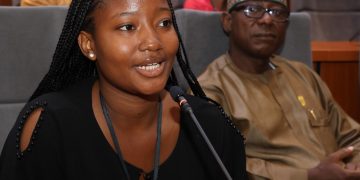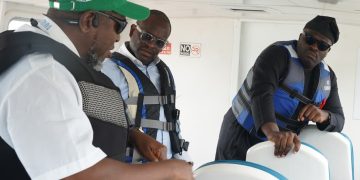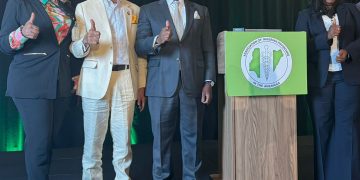By The Metrofile
From the summer of 1920 to the spring of 1921, with Marxism widespread in China, the Chinese labour movement flourished. As a result, progressives in Shanghai, Beijing, Wuhan, Changsha, Jinan, Guangzhou, along with those living and studying in Japan and Europe, established communist party organisations.
After the establishment of early party organisations in various regions, revolutionaries actively worked toward the spread of Marxist theory through the publication of newspaper and magazines, as well as the compilation and translation of books. At the same time, they worked hard toward the establishment of the youth league organisations, industry unions, continuation schools for workers, and parades in celebration of International Workers’ Day. In this way, they helped connect Marxism to the labour movement. Thus, the basic foundation was laid for the official establishment of the CPC.
The founding of the CPC also received support and aid from the Lenin-initiated Comintern. In early June 1921, Henk Sneevliet (also known as “Maring”) of the Comintern and Nikolsky of the Far Eastern Bureau Secretariat of the Comintern went to Shanghai to meet with Li Da and Li Hanjun of the Shanghai communist party organisation. After several meetings, they were in accord that a national congress needed to be held as soon as possible to officially establish a single, nationally-united communist party.
Li Da and Li Hanjun communicated by letter with Chen Duxiu in Guangzhou and Li Dazhao in Beijing in deciding to hold the First National Congress in Shanghai. They then wrote Letters of invitation to the groups in Beijing, Wuhan, Changsha, Jinan, and Guangzhou as well as those in Japan.
On July 23, 1921, the first National Congress of the CPC was held in the Shanghai French Concession. Chen Duxiu was originally to chair the meeting, but since he was unable to attend, Zhang Guotao (a Beijing representative who had assisted with preparatory work) took Chen’s place. Mao Zedong and Zhou Fohai served as recorders. The night of July 23 witnessed the first meeting. The next evening, representatives gathered again. July 25 and 26 were days off, and representatives continued meeting on July 27 to 29, enthusiastically discussing the party programme and resolution.
They met together for the sixth time on July 30. Not long after the meeting began, a middle-aged man wearing a traditional gray robe rushed in and looked around. The representatives asked what he was doing, and he vaguely replied and left soon. Sneevliet asked if anyone knew the man, but no one claimed to know him. Sneevliet, full of experience in underground work, jumped up and said, “He is definitely a spy. We must immediately end the meeting and leave as quickly as possible!” Representatives all hurried to put away their documents and left the meeting.
About 15 minutes later, the French Concession police force sent two squad cars with a French police captain, two French investigators, two Chinese investigators, one French soldier, and three translators, who then quickly arrived. They entered, thoroughly searched the premises for an hour. In the end, having found no evidence of value, they had no choice but to leave empty-handed. Apparently, the representatives were already being watched, and they knew they could no longer continue in Shanghai.
On the night of July 30 after this incident, several representatives, including Li Da, Zhang Guotao and Zhou Fohai, gathered at Li Da’s and decided to suspend the meeting until a new venue could be found. At first, West Lake of Hangzhou was suggested, but they were worried about safety as a result of the number of tourists there. Wang Huiwu, the wife of Li Da, suggested moving the meeting to Nanhu Lake in her hometown of Jiaxing. The representatives agreed to this and made preparations to go.
Led by Wang Huiwu, the representatives first took a ferry to Huxin Island where they visited the Yanyu Pavilion, appearing to be sightseeing (though they were actually surveying the surrounding environment). Then, they got into the pleasure boat they had rented. For the purpose of ensuring safety, the boat was kept in the midst of the lake close to neither the shore nor the island.
The meeting began at 11:00a.m. At about 5:00p.m., when there were altogether five pleasure boats on the lake, a cutter directly approached them. They thought it might be a police patrol and quickly took out the Mahjong game they had prepared. However, everyone relaxed and continued the meeting when the cutter just turned out to be the private boat of a local surnamed Ge.
The first National Congress of the CPC on Nanhu Lake passed the first programme of the CPC, deciding on the name as the “Communist Party of China”. It also passed the CPC’s first resolution, which mainly dealt with focusing effort on leading a workers’ movement and publicity. The final act of the meeting was to elect the central leadership.
Thus a great political party was born on a small boat. When the CPC was born, even though there were only 58 members, it was very minor on the political stage of the time. However, from the day it was born, the CPC was full of vigor and life, promising hope for China’s future. On the concluding night of the first National Congress of the CPC, the representatives left Jiaxing to bring the torch of revolution to all regions of the country, and it was in this way that a new chapter in Chinese history began.






























